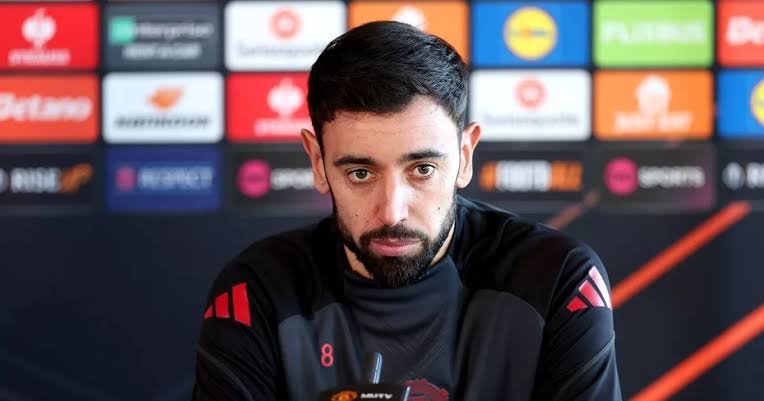Bruno Fernandes snubbed a jaw‑dropping Saudi mega‑deal”
0-1In today’s football world, headlines scream about massive offers from Saudi Arabia—stories of players flipping clubs for untold riches have become almost routine. But one of the biggest bombs dropped this summer wasn’t a sizzle—it was a silence. And that silence came courtesy of Bruno Fernandes, who turned down a staggering £200 million package and a cool £700,000‑per‑week salary from Al‑Hilal. Yes, you read that right .
So why did he say no to that kind of cash? Trust me, it didn’t come down to missing Avon and VAT. Fernandes made his choice based on a blend of ambition, loyalty, family, and purpose.
—
1. A love for Europe’s elite football
792-1Fernandes didn’t just say no—he explained why. He made it crystal clear: he wants to stay at the highest level, playing in elite European competitions, not settling into retirement mode in Saudi Arabia . Despite a season ending without European football (a very un‑United fate), his hunger hasn’t dimmed. He spoke of having “unfinished business” at Old Trafford and wanting to help rebuild—this is no mercenary move; it’s a mission.
—
2. A family-first decision
1272-1When he was weighing options, Fernandes turned to the people who mattered most—his family. In particular, his wife Ana, played a pivotal role. He shared that she “put my professional priorities ahead of everything else” . Picture that: the power-house behind the power-play, steering him toward ambition over easy money. It shows that even a super‑rich footballer isn’t immune to heart and home influence.
—
3. His coach made a heartfelt plea
1801-1Fernandes also credited Ruben Amorim, Manchester United’s coach, for urging him to stay . That personal appeal made a difference. Those midnight WhatsApp calls between player and coach? Not just PR—those “speak from the heart” moments reportedly shaped his choice.
—
4. Manchester United wasn’t interested in selling
2159-1Turns out, United themselves had no intention of letting him go—unless he insisted . 2514-0The club’s new owners (Ineos) have reportedly labeled Fernandes “critical” to both on‑field performance and leadership—they’ll only sell for “extraordinary” money . That safety net made it easier for him to stay.
—
5. Legacy over lifestyle
2712-1Calls from former players like Emmanuel Petit praised Bruno for putting loyalty and goals ahead of dollar signs. Petit said it was a “remarkable” decision—dubbing it a rare display of character . After all, not every elite player turns down quadrupled pay just to chase European nights.
—
6. The bigger picture: Al‑Hilal’s ambition
3018-1Let’s not downplay it: Al‑Hilal’s offer was massive—£200 million tax‑free, over two years, with a weekly paycheck that could pay off your house in a few weeks. And they weren’t just flashing cash—they actively wanted to convince him. Their president, coach, and management team reached out personally—yet even their charm offensive couldn’t crack him . Clearly, their bid aligned with Saudi plans to reshape global football, but it didn’t align with Bruno’s ambitions.
—
Why this matters
Bruno’s choice flips the script. In an era where mega‑money deals shape careers, here’s a player saying “not now, not worth it.” He’s choosing to chase wins, rebuild a club in crisis, and chase trophies over comfort and luxury. It’s a rare message in today’s game—and a powerful one.
—
What’s next
With Fernandes staying put, United have a cornerstone to build around. They’ve already signed Matheus Cunha and are chasing Bryan Mbeumo, signaling their intent. Now, with their captain recommitted, they can lay out a real blueprint for returning to Europe’s stage—something Bruno clearly wants to be part of.
—
In the end, this wasn’t cheap bravado. This was ambition. And a smart use of “no thanks.” One of football’s most high‑earning midfielders chose fight over funds, mission over money. If that doesn’t
deserve a “BRUNO STOOD FOR MORE THAN MONEY” headline—what does?
—
